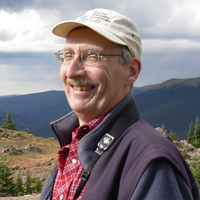 Gilles GauthierDépartement de biologie & Centre d'études nordiques Gilles Gauthier is one of the founding members of the ecological studies and environmental monitoring on Bylot Island and the project leader. He cumulates more than 30 years of experience studying the Greater Snow Geese, avian predators and lemmings on Bylot Island. His main research interests are population dynamics, reproductive strategies, migration and trophic interactions (plants-herbivores-predators). He is the scientific director of the Centre d’études nordiques since 2016. | |
 Dominique BerteauxDépartement de biologie & Centre d’études nordiques Dominique Berteaux is a wildlife biologist and University Professor who currently holds a Canada Research Chair on Northern Biodiversity. He is interested in the behaviour and ecology of mammals, the conservation of biodiversity, and the understanding of forces organizing northern ecosytems, including climate. On Bylot Island more specifically, his research focuses on the predatory behaviour, movements, and population dynamics of Arctic Foxes. | |
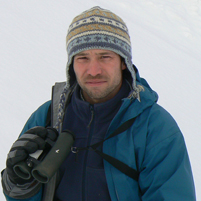 Joël BêtyDépartement de biologie & Centre d’études nordiques Joël Bêty is an animal ecologist working on Bylot Island since 1995. His work mostly focusses on animal behavior, population dynamics and species interactions in the arctic tundra ecosystem. On Bylot Island, he is leading and co-leading long-term research projects on various bird species, including insectivorous birds, aquatic birds and raptors. | |
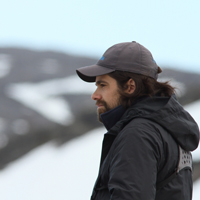 Dominique FauteuxCanadian Museum of Nature Dominique Fauteux has been studying the ecology of small mammals since 2009 and focuses today on the role of these animals that are at the base of the terrestrial food chain of the Arctic. The causes and consequences of cyclical and non-cyclical fluctuations of lemmings and voles are the mainstay of his research program. At Bylot Island, his goal is to understand the role of predator-prey interactions on the summer and winter demographics of lemmings and how these relations modulate their habitat use. | |
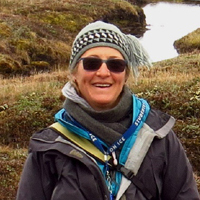 Isabelle LaurionCentre Eau Terre Environnement & Centre d’études nordiques Isabelle Laurion is a limnologist studying lakes and ponds influenced by permafrost thawing in subarctic and arctic regions. She started to work on Bylot Island in 2005. She is interested in the functioning of these aquatic ecosystems (seasonality, thermal regime, oxygen availability, exposure to sunlight, biogeochemistry of organic matter, microbial diversity) and in their contribution to the global carbon cycling through their greenhouse gas emissions. | |
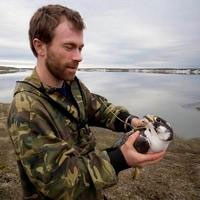 Nicolas LecomteDépartement de biologie & Centre d’études nordiques Nicolas Lecomte currently holds a Canada Research Chair in polar and boreal ecology. He is interested in unraveling the key changes occurring in polar and boreal ecosystems by conducting a number of short- and long-term and broad-scale studies at field sites throughout the Arctic. To measure the footprint of human-induced change in these critical areas, he is monitoring key ecosystems and important species such as arctic foxes and peregrine falcons. | |
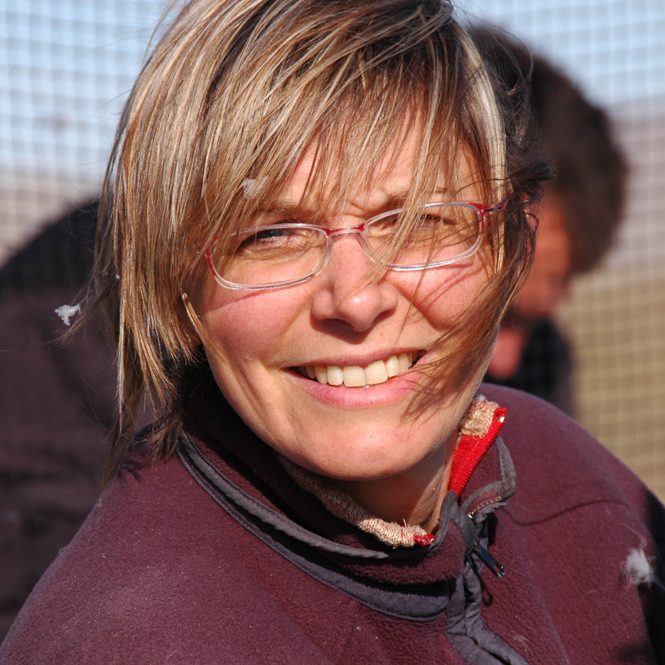 Josée LefebvreCanadian Wildlife Service, Quebec region Josée Lefebvre is a wildlife biologist who has been working on waterfowl since 1992. Her involvement with the greater snow goose began in the late 1990s and then more extensively with her position with the Canadian Wildlife Service since 2004. Having worked in various parts of the Canadian Arctic since the early 2000s, her involvement in the Bylot Island project is mostly with the greater snow goose banding program. She is also responsible for various monitoring programs in southern Quebec (population spring survey, fall productivity survey). | |
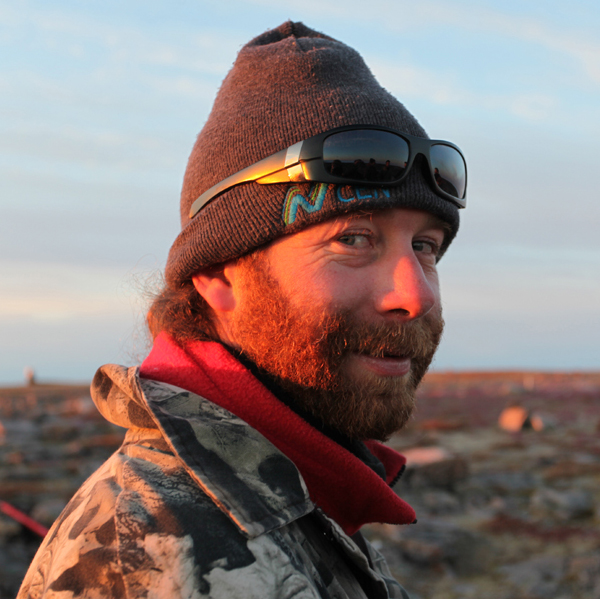 Pierre Legagneux
Département de biologie & Centre d'études nordiques, Université Laval, Québec Pierre Legagneux studies the ecology of migratory waterfowl since 2001 and currently holds a Sentinel North Research Chair on the impact of animal migrations on Arctic ecosystems. His research program studies the food webs of migratory birds in order to better understand and predict ecosystem responses to global changes. He is interested in how individuals adapt their migratory strategies in response to global warming and multiple anthropic pressures. He is also interested in the transfers of energy and pollutants from southern ecosystems to the North that are mediated by migratory animals. His research program also includes northern communities through the implementation of citizen science projects on biodiversity. | |
 Esther LévesqueDépartement des sciences de l'environnement & Centre d’études nordiques First introduced to the Arctic in 1989, Esther returned ever since to learn more about this fascinating region and the people who call it home. She is an arctic plant ecologist interested in vegetation change from treeline to polar deserts. Her research focuses on how vegetation influences Arctic ecology including berry productivity, herbivore activity, snow distribution as well as permafrost stability. With her research team she also contributes to developing community-based monitoring and promoting participatory research. | |
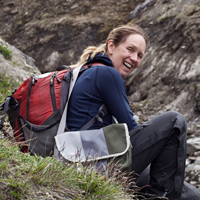 Line RochefortDépartement de phytologie & Centre d’études nordiques Line Rochefort's field of research is plant biology. She is the leader in peatland ecological restoration in Canada and one of the world's pioneers in this field. She is also interested in the production of Sphagnum biomass for the development of new growing media and the ecological restoration of other types of environments, such as mineral zones and cranberry farms. At Bylot Island, she studies the impacts of grazing by snow geese and of the contribution of fertilizers by their faeces on the plant communities of the tundra, in the context of climate change. | |
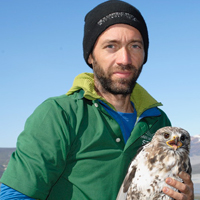 Jean-François TherrienHawk Mountain Sanctuary Jean-Francois Therrien is an ecologist involved since 2007 in research projects dealing with the tundra ecosystem. His work is essentially centered on movement ecology of avian predators and their prey, including the assessment of reproduction and survival rates, dispersal and migration strategies. He is currently leading research initiatives dealing with snowy owls, rough-legged hawks and other avian predators on Bylot Island. | |
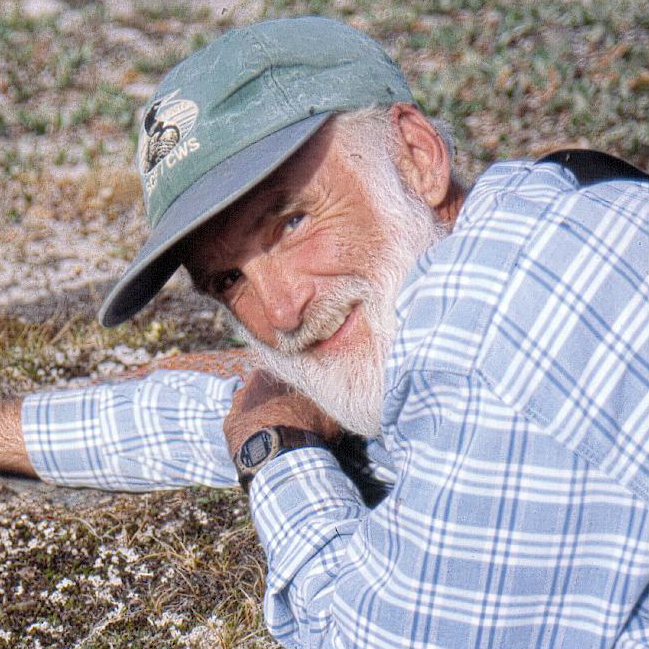 Austin ReedCanadian Wildlife Service, Quebec region Austin Reed is one of the founding members of the ecological studies and environmental monitoring on Bylot Island. He has studied the ecology of migratory waterfowl since the early 1960s. His involvement with snow geese began in the early 1970s as a research biologist with the Canadian Wildlife Service working in the St. Lawrence Valley. He expanded his studies to include Bylot Island and other areas of the eastern Canadian Arctic starting in 1979. After his retirement in 1998 he has continued his involvement with the snow goose research work as an emeritus researcher for many years. | |
| Research staff |
